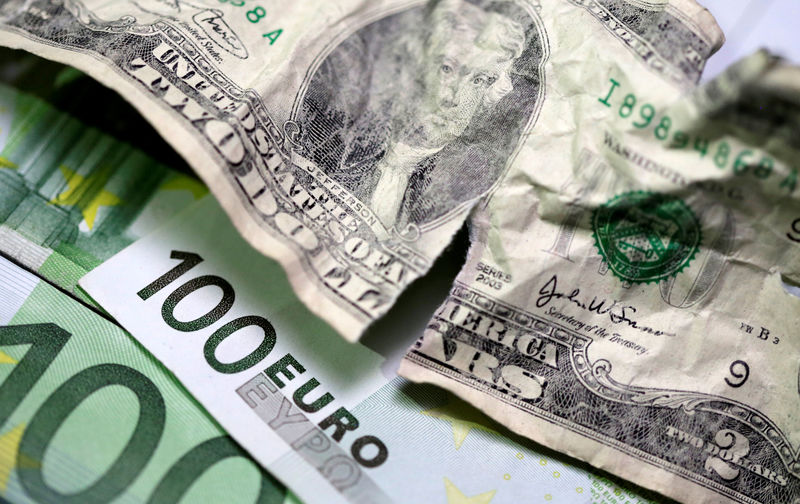Investing.com – The U.S. dollar rose Tuesday as Federal Reserve Chair Jerome Powell played down the likelihood of another outsized interest rate cut, while the euro slipped lower ahead of the release of the latest eurozone inflation data.
At 04:10 ET (08:10 GMT), the Dollar Index, which tracks the greenback against a basket of six other currencies, traded 0.2% higher to 100.737, after gaining 0.3% overnight.
Hawkish Powell helps dollar
Federal Reserve Chair signaled that the US central bank will continue to cut interest rates, but indicated that it would likely stick with quarter-percentage-point interest rate cuts moving forward.
“The 50bp reduction in September means that market pricing is more structurally dovish-leaning, perhaps also on the premises that the Fed wouldn’t want to underdeliver on easing should a 50bp move be priced in by the FOMC date,” said analysts at ING, in a note.
“Powell said the base case is two 25bp moves by year-end, which is unusually specific guidance that signals his discontent with market dovish pricing,” ING added. “The balance of risks in the very near term is probably skewed to the upside for the dollar.”
The widely-watched monthly is due on Friday, and the US economy is expected to have added 144,000 jobs last month.
Weaker than expected data could revive fears over the prospect of a recession, while unexpectedly strong jobs growth may stir worries that the Fed will not cut rates as deeply as expected.
Euro prepares for inflation release
In Europe, edged 0.1% lower to 1.1120 ahead of the release of the latest number later in the session, amid hopes for more interest rate cuts by the European Central Bank as the year draws to an end.
Data released on Monday showed that German inflation eased slightly more than forecast to 1.8% in September, slightly below the 1.9% forecast, and followed a year-on-year increase in consumer prices of 2.0% in August.
Inflation is also easing in France, Italy and Spain, suggesting that the risk to the eurozone forecast of 1.8% growth annually in September is to the downside.
European Central Bank President Christine Lagarde told parliament on Monday that “the latest developments strengthen our confidence that inflation will return to target in a timely manner,” and this should be reflected in the Oct. 17 policy decision.
traded 0.2% lower to 1.3340, retreating further from last week’s high of 1.3430, climbing to a level not seen since February 2022.
Yen slips after BOJ minutes
rose 0.4% to 144.16, after the of the Bank of Japan’s July meeting showed that policymakers were divided on how quickly the central bank should raise interest rates further, highlighting uncertainty on the timing of the next increase in borrowing costs.
At the July meeting, the BOJ unexpectedly raised short-term interest rates to 0.25% by a 7-2 vote, taking another step towards phasing out a decade of huge stimulus.
edged higher to 7.0185, with trading in the yuan quiet with Chinese markets now closed until Tuesday next week as the country celebrates Golden Week.













